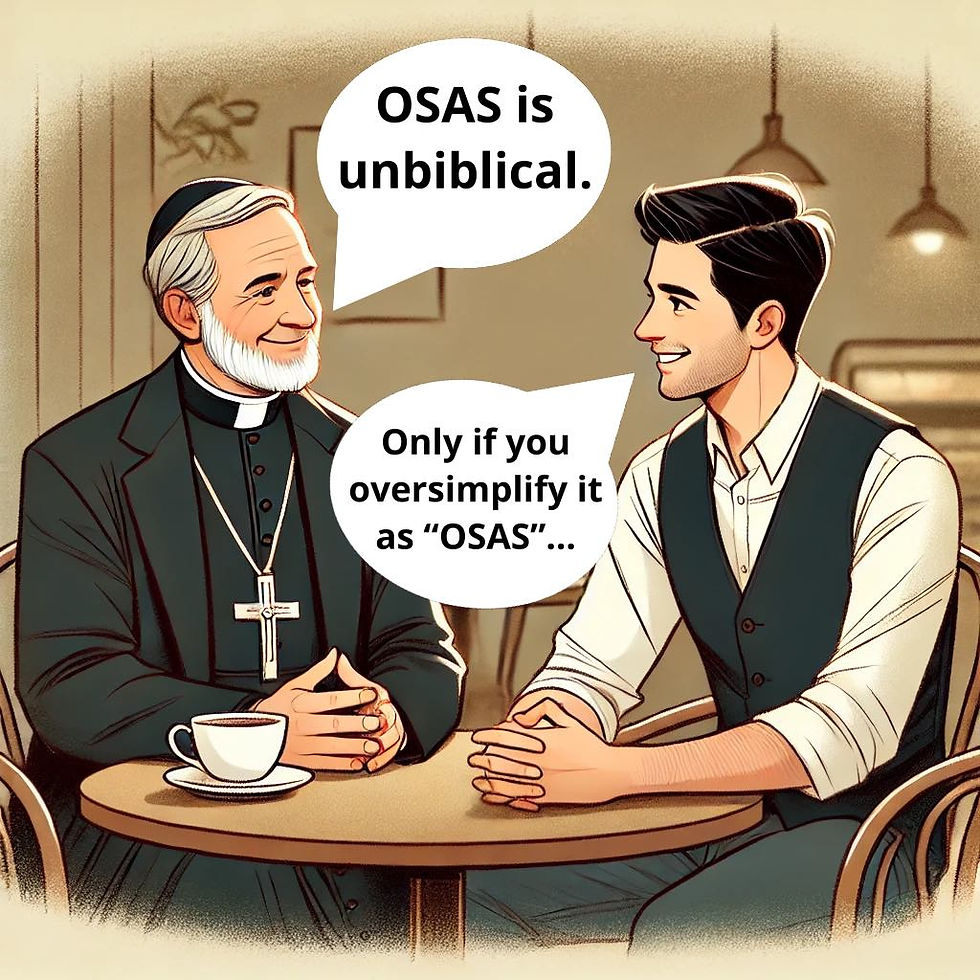Open Theism's redundant phrase
- Bible Brian

- Mar 19, 2022
- 2 min read
Updated: Aug 1, 2023

A common faux pas in writing is the use of redundant phrases. That is, the use of unnecessary repetition of words, phrases, or ideas. For example, "end result", "unexpected surprise", or "added bonus". Each of these pairings of words have the same meaning. Results naturally come at the end, so you can just say result. No one expects a surprise, so you can just say surprise. A bonus is a thing that is added, so you can just say bonus.
Open Theists have their own redundant phrase. Rather than just saying "God knows all things", as Scripture plainly teaches, they like to add "that can be known". Since God can, and does, know all things, all things can be known, thus eliminating the need to add "that can be known".
But Open Theists dispute this, claiming that the future actually cannot be known. God, they say, does not know the future, because the future cannot be known. Everyone knows God is omniscient, but just as omnipotent doesn't mean "God can do all things" (for example, God cannot lie), omniscient, they argue, doesn't mean God can know all things.
The first flaw in this reasoning is that there is a considerable difference between knowledge and power. God cannot sin, but He can know sin. God cannot lie, but He can record the lies of others. Knowing and doing are two different things, and so cannot be reasonably compared.
But a greater flaw in this reasoning is that there are multiple times in Scripture in which God not only tells us He can predict the future, but also proves it. It's called "prophecy", and it's actually how we identify Jesus as the Messiah. Every major detail of Christ's life was foretold before His incarnation. This is why God is able to honestly say things like "I declare the end from the beginning, and from long ago what is not yet done, saying: My plan will take place, and I will do all My will." (Isaiah 46:10). How can God declare the end from the beginning if He does not know the end from the beginning? How can God declare from long ago that which is not yet done if He did not know things not yet done from long ago?
If you believe the Bible, you believe God knows the future. If you don't believe God knows the future, you don't believe the Bible. If you don't believe the Bible, you believe you know more than God. If you believe you know more than God, you are deep in the quagmire of blasphemy. God knew you'd be there, and He also knows how to get you out. Repent, and He will do so.






Comments